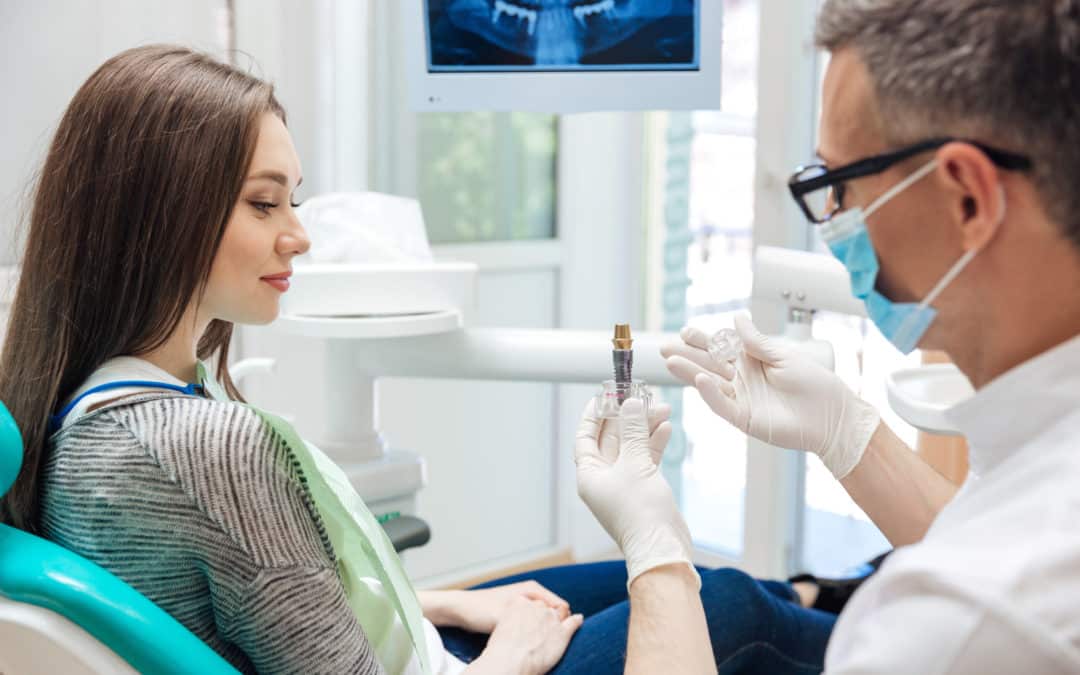Did you know that 20% of children aged 5-11 years will have at least an untreated decayed tooth?
Don’t let this happen to your kid! Bringing your child to the dentist helps a lot in improving their dental health. It reinforces positive habits that can stay with them until adulthood.
But what is the right frequency of visits for your child? Don’t let go of that thought yet.
With this guide, you’ll learn how often should you see a dentist with your child. Read on and find out more:
When to Have a Dental Exam
Lots of factors affect how frequently you must bring your child to the dentist for an exam. This includes age, dental health, and risk of getting tooth decay. Regardless, use these guidelines since they’re applicable to almost any situation:
1. Children Ages 6 Months to 1 Year
Both the American Academy of Pediatric Dentistry and the American Dental Association recommends that your child’s first dental exam should be when their first tooth appears. You must ensure that it isn’t later than your child’s first birthday. Also, expect that they will examine your baby’s teeth and gums during their physical checkups.
It’s important to get their first tooth checked since a dental visit can ensure whether they have no cavities. Also, another thing to consider is that your child’s first dental visit will mostly be educational. This ensures that you have the tools necessary to aid your child’s efforts in maintaining a cavity-free childhood.
2. How Often Should You See a Dentist Up to Adolescence
Once they reach this stage, you must schedule regular dental checkups. The most common interval is twice each year. That means you can schedule their dental visits once every six months.
Ask your dentist whether your child needs more visits. Their recommendation can change, depending on your child’s risk factors. The more likely they get oral health problems, the more dental visits they should have.
Why Children Should Have Dental Exams
Frequent dental visits are necessary if you want your children’s dental health to remain consistent. It’s especially effective when coupled with other dental care methods beyond simple brushing. Here are reasons why you should take children at the dentist:
1. Protect Teeth from Decay
This is the most obvious benefit of having frequent dental exams. It’s possible since the dentist can identify the early symptoms of dental disease and decay for your child. Do this even when you give your child’s teeth excellent care on your own.
After all, no matter how good you take care of your child’s dental health, some symptoms aren’t easy to see without professional dental expertise. Dentists have the means of catching these early on. That way, they can fix the issue before it becomes a bigger issue.
Parents often think that baby teeth need no extensive care since they fall out later on. Remember, their permanent teeth will grow directly beneath them. Baby teeth serve as a guide to their permanent counterpart, so they play a major part in your child’s dental health later on.
2. Ensure Proper Tooth Development
Dentists will examine your child’s teeth to know whether they’re developing correctly. They will watch for missing or crooked teeth that might need corrections. In some cases, they’ll also catch deficiency in fluoride and recommend the right adjustments.
With this, your child either gets more fluoride intake or use a topical fluoride solution instead. Dentists can also explain and demonstrate how to properly brush and floss your teeth. These techniques are valuable to both you and your offspring.
3. Build Comfort
If you bring your child to the dentist once every six months from an early age, they become more used to the dental office environment. This means they’re building up their comfort and confidence. All the while, their anxiety and fear of the dentist decreases, making their future visits more stress-free.
What to Expect During Dental Visits
When visiting your dentist, you and your child must know what to expect during their first time. That way, you can set the right expectations and prevent them from getting anxiety. Reassuring your children with concrete information allows them to be more cooperative when caring for their dental health.
The first dental visit often involves the dentist asking your child’s full health history. After that, they’ll do a simple examination of both their teeth and jaw structure. On your next visit, talk to their dentist on any changes to your child’s dental health status.
Here are other things you can expect when you visit the dentist with your child:
1. The Dentist Cleans Your Child’s Teeth
Whether it’s a dentist or a dental hygienist, they will scrape below the gum line. This ensures that any built-up plaque and tartar disappear. This ensures they won’t get gum diseases, bad breath, cavities, and other dental problems.
After that, these professionals will polish and floss your little one’s teeth. This will eliminate all the debris that can cause their dental health to deteriorate. It’s extensive, especially when they aren’t taking proper care of their hygiene.
2. The Dentist Performs a Complete Dental Examination
Pediatric dentists will often handle this job. The dental examination will be thorough, checking every nook and cranny of their teeth, gums, and mouth. That way, you’re certain whether your child has any symptoms of illnesses and other negative dental conditions.
3. The Dentist Performs X-Rays
This often happens after a few dental visits. They will use x-rays to diagnose issues otherwise undetectable until the pain hits. This includes jawbone damage, impacted teeth, cysts or tumors, abscesses, and in-between teeth decay.
You must deal with these conditions immediately. That’s why when the dentist requests for an x-ray, agree to it as soon as possible.
Get the Best Dental Care Here!
These are things you must consider to answer the question, “how often should you see a dentist?” Use this to guide your dental decisions, especially if it concerns your child’s well-being.
Do you need a reputable dentist for your child? Let us help! Don’t hesitate to contact us today and let’s talk.

